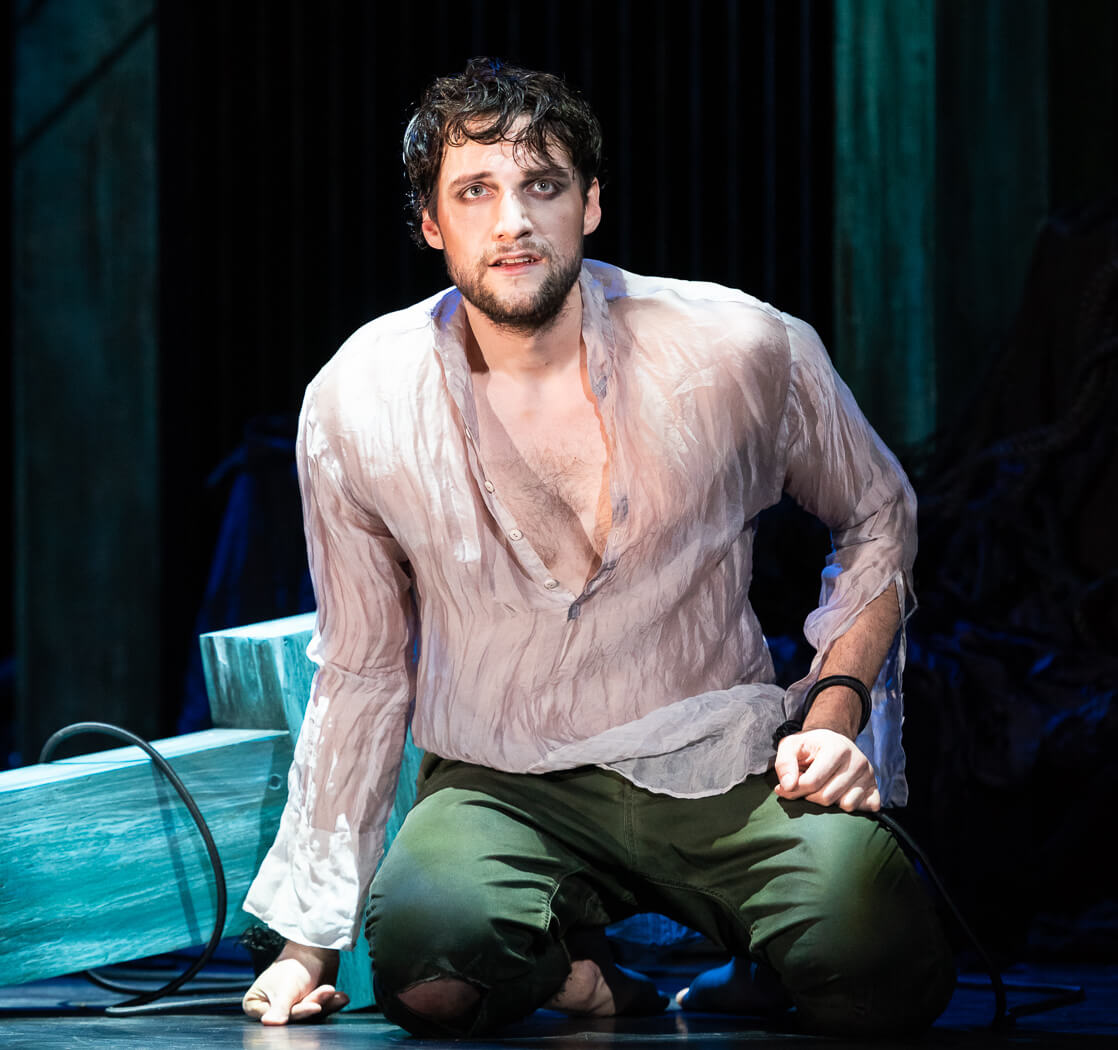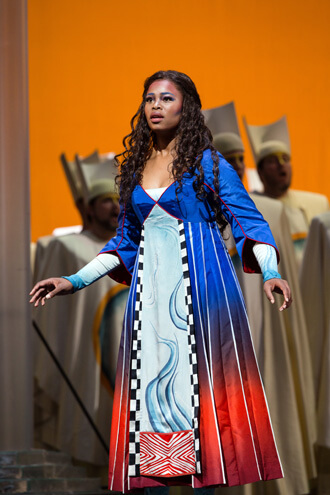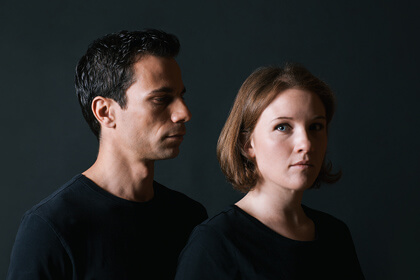Hearing vocal performances from other cities — and in other cities — can at times complement and contextualize one’s experience of our local opera season.
Washington’s Opera Lafayette, which has become a regular visitor to New York, provided a highly enjoyable performance of Beethoven’s “Leonore,” the original version of his “Fidelio,” on March 2 at Hunter’s Kaye Playhouse. The last major airing of “Leonore” I recall hereabouts was a concert under John Eliot Gardiner two dozen years ago. “Fidelio” is in several ways an improvement, but the earlier music, in places considerably more florid, merits hearing. Plus some dramatic moments differ: the lovers’ ecstatic reunion duet, as in Mozart’s “Abduction,” finds them dubious as to their survival.
Ryan Brown had some wonderful players aboard, including Krista Bennion Feeney ( concertmaster), John Feeney (bass), and Charles Brink (flute); the brass section did better than most period orchestras manage. Brown’s reading was well rehearsed if sometimes lacking in drive, particularly pre-intermission. Oriol Tomas’ direction was clear and well blocked, and Laurence Mongeau furnished a skeletal but effective set and apt period costumes, the whole well lit by Rob Siler. It did not feel like a ‘tour stop” performance in any sense.
A largely Canadian cast coped well in this intimate venue, even when ringtones shattered the mood. Flowing lyric-voiced Nathalie Paulin fielded good German and the requisite agility in Leonore’s wickedly demanding music, her tone only occasionally hardening at the very top. The lean Jean-Michel Richer may be the only visibly credible Florestan I’ve ever seen. (Jon Vickers, James McCracken, Ben Heppner, and other great exponents did not look like prisoners starved for two years.) Richer’s tone isn’t notably airy or bright but he sang musically and forthrightly, including the third act aria as plausibly reconstructed by Will Crutchfield. Persuasively lean on prison fare, as well, Stephen Hegedus (Rocco) and Matthew Scollin (Pizarro with a Hitler mustache that he all but twirled) sang with focus and good line. Pascale Beaudin’s reedy, soubrette Marcelline sported a Louise Brooks bob and duetted well with Paulin. Alexandre Sylvestre brought a substantial sound to Don Fernando, the deus ex machina who saves whistle-blower Florestan from a gross abuse of power. A thoroughly enjoyable performance: a rarity these days.
In DC itself, the Washington National Opera opened a new “Don Giovanni” February 29 that was inevitably inflected by recent #MeToo developments involving Harvey Weinstein and (former WNO artistic director) Plácido Domingo. E. Loren Meeker’s production made some valid and effective points, though — as often happens with this opera — momentum stalled in Act Two. The frequent deployment of white-clad victims of Giovanni simply didn’t work and too often drew focus from the principals. Erhard Rom’s set oddly blended disparate abstract elements, but the costumes recycled from an old Ponnelle production provided some context. The evening — which started with a standing ovation for opera lover Justice RBG — ended with the three sopranos onstage celebrating their joint victory over their dangerous abuser.
Evan Rogister generally steered a reasonable course, with convincing decorations by his very solid cast, but Mozart’s demanding music exposed the company’s orchestra as being not quite top drawer. Ryan McKinny, looking duly sexy as Giovanni, performed professionally but without consistent tonal focus; to sing softly he went off breath support (lots of Wagner may have taken some toll on his voice’s steadiness). It seemed a cheap out for Meeker to portray Giovanni’s misdeeds as issuing so clearly from his frat-boy drunkenness, excluding any particular philosophical dimension. Kyle Ketelsen again showed himself a superb Leporello, with resonant yet ever-flowing tone and a great balance of comedy and verbal urgency.
Rising soprano Vanessa Vasquez sang Anna — here welcomely unblamed for her assault by Giovanni — with gorgeous tone and seeming technical ease. A sympathetic Elvira not afraid to appear over-the-top, Keri Alkema vocalized her difficult music very well indeed, though words were stinted. Alek Shrader (Ottavio) gave a typically stylish, forthrightly acted interpretation but his upper register grows more constricted by the year. “Il mio tesoro” landed on the cutting room floor — and not because this was in any sense the opera’s “Vienna” revision. Lively, with a soubrette instrument that carries, Vanessa Becerra served Zerlina well, opposite a musically unformed Masetto. No bel cantist, Peter Volpe presented the Commendattore effectively.
The next afternoon I saw my first performance by Baltimore Concert Opera, which has been offering some impressive piano-accompanied repertory in a splendid if somewhat airless Gilded Age ballroom. Donizetti’s “Anna Bolena” benefitted from several veterans of Will Crutchfield’s Teatro Nuovo bel canto ‘finishing school,” including the deft conductor, Rachelle Jonck. Some cuts — mainly choral, or second verses — inevitably prevailed.
My jaw only dropped once, when tenor Derrek Stark — not much of a platform actor as the dim-witted Percy, but certainly stylistically knowing and vocally adequate to the high-lying part crafted for the great Rubini — simply left the stage with his final cabaletta (“Nel veder la tua costanza”) unsung. Maybe prudent, as with Shrader, but a shock.
Also, the remarkably gifted soprano Meghan Kasanders, vocally sumptuous if sometimes lacking in “la parola scenica” — meaningful inflection of text — in the marathon title role, began her Mad Scene asking why the chorus of ladies-in-waiting was crying, despite their lament having been cut. But she did much highly impressive singing and embodied Anna’s wounded dignity.
The real standout for vocalism and textual delivery was fiery, wide-ranging mezzo Hannah Ludwig as Giovanna Seymour. Hans Tashjian — surely the tallest, thinnest Henry VIII ever depicted — knows his bel canto style but his elegant bass lost focus in topmost phrases. Noragh Devlin, in a pantsuit but with pendant earrings (!) as the page boy Smeton, showed good vocal material though not completely knit together as to registers.
Withal, the audience got a highly capable traversal of this wonderful score, a rare event in regional theaters. Worth keeping an eye out for future BCO programming: it’s less than three hours from Penn Station.
Swedish mezzo Ann Hallenberg has been a leading baroque practitioner for a quarter century; at her best, live and on recordings, she is a wonderful musical stylist with a mellow, flexible sound. Prepped by a worshipful New York Times article (usefully) calling attention to her stature, she got a heroine’s welcome February 27 in a Carnegie/ Zankel concert with the Venice Baroque Orchestra rather foolishly titled “The Swedish Nightingale.” (The fabled Jenny Lind’s repertory did not extend to Vivaldi and Broschi.)
I’ve enjoyed Hallenberg’s singing for years but had mixed feelings on this occasion. First off, the once expert VBO sounded downright ratty at first, with much approximate playing and violin sonorities, from the concertmaster on down, worthy of a pasticcio named “I gatti nel periglio” (“Cats in Danger”). We heard somewhat better from them after the break, but few things approached the delicacy of lutenist Ivano Zanenghi’s subtly inflected slow movement cadenzas in Vivaldi concerti.
For her part, Hallenberg did wondrously in legato numbers, like a truly exquisite Handel’s “Vieni, o figlio” from “Ottone” and (as a last encore) “Lascia chi’s pianga” from “Rinaldo.” The fiery, large-emotion arias she dispatches memorably on YouTube here lacked commanding tonal penetration and, often, idiomatic verbal bite; plus, two of three upward cadenzas ended in yelps. I’m glad to have heard her live again, but wished for more consistent results.
David Shengold (shengold@yahoo.com) writes about opera for many venues.
































